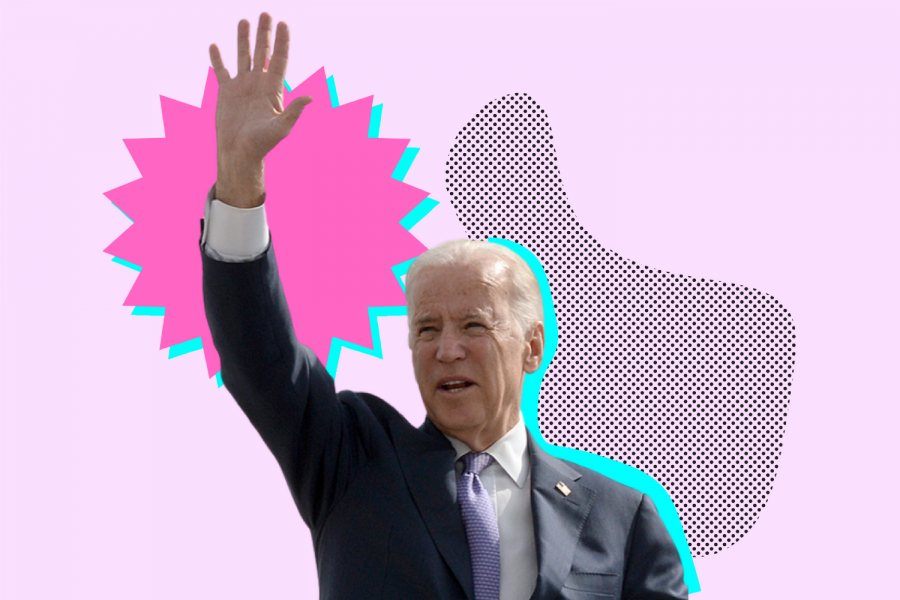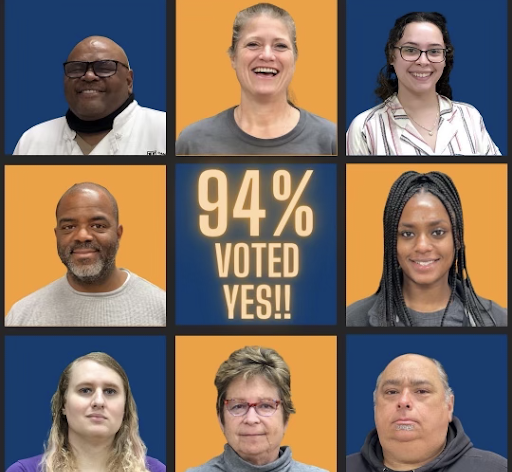Oh, what would I have given for a pay raise back when I worked at my local McDonald’s.
I remembered my first salaried job as clear as day. I wore a black visor. I had to give someone $2 change in dimes. The ice cream machine emitted hot milk in lieu of cold ice cream. But I didn’t work for all of that fun. Instead, I—or rather, my family—had incurred some unexpected expenses derived from unforeseen circumstances, and I worked to earn money for my family. This situation is something I’m sure that some of my peers are familiar with.
But as a minimum wage worker, I understand the profound impact a pay raise would have for the millions of Americans working at the borderline of self-sustaining jobs, especially for college students like me. This was why I fervently supported now-President Joe Biden in his campaign for the presidency on the premise of an adequate minimum wage for all. He understands the resounding impact that can arise from raising the minimum wage from $7.25 to $15, something that is long overdue.
Biden mobilized his successful presidential campaign on this rallying promise. For more than a decade, the minimum wage was flatline, obstinate to the country’s ever-skyrocketing inflation rates. Since 2009, the minimum has been $7.25 (29 states and the District of Columbia have already institutionalized minimum wages higher than the federal minimum) and has not fluctuated to countervail the rising costs of consumer goods and the overall cost of living.
For the time being, Biden’s proposal is under the wraps of a $1.9 trillion COVID-19 relief package spearheaded by a Democratic-controlled Washington. Unfortunately, it looks as if the galvanizing momentum is sputtering to a rancorous halt by a staunch coalition of GOP politicians—and even a few moderate Democratic stragglers—who are balking at the misconceived idea that a $15 minimum wage will splinter the American economy.
This does not sit well with me. I have heard of individuals—most of whom were either Boomers or Generation X’ers—who paid their way through college via part-time jobs or side hustles. Clearly, this is no longer applicable because we are not living in the 60s when college tuition was at its most affordable.
It is not feasible to work 15 hours a week on the meager pittance that cannot even satisfy the most basic of sustenance, let alone college tuition.
Besides, college is expensive; ever since the 1980s, the cost of enrollment at four-year universities has risen outlandishly on an exponential trajectory. The average price of private universities in 2009 was approximately $38,720, whereas the average in 2019 was $48,510. In short, the stagnancy of the federal minimum wage is not doing college students any favors when compared to a disproportionate increase of 21 percent in college tuition.
Unfortunately, out of the many people who do not possess the luxury of swiping daddy’s AmEx Black Card, some college students are even relegated to working more than 20 hours a week just to keep up. Statistics poignantly show that nearly 25 percent of students with part-time jobs work at least 20 hours—and to add salt to the wound, a quarter of those students report having skipped classes to go to work. Conventional wisdom dictates that students should not try to surpass the 15 hours-a-week threshold in an effort to graduate on sufficient academic standing. Given the soaring costs, this metric is now archaic—as well as the $7.25 minimum hourly wage. This wage is not only a detriment to college students, but also single parents working multiple jobs and immigrants seeking the American Dream.
Congressmen and congresswomen of Washington, it is time to dismount from your high horses, retreat from your ivory towers and surrender your stubborn guises of tone-deafness. Adjusting the minimum wage should not be a contentious matter put under consternation. It is the morally correct choice to make. The notion that an increased minimum wage causes an economic implosion has been debunked by esteemed economists, so why—and what exactly—are you still peddling? Denying Americans and college students a $15 hourly minimum is merely a palliative to delay a morally just choice.
Given that an affordable college experience is now a fantasy for the uninitiated and a fleeting memory to a few, today’s college students must make enough so that they can dedicate adequate time and effort to their education. To be indifferent to this issue is to disenfranchise innumerable students from reaching their full academic potential and hinder a vibrant generation of young minds from individuality, self-determination and creativity.








